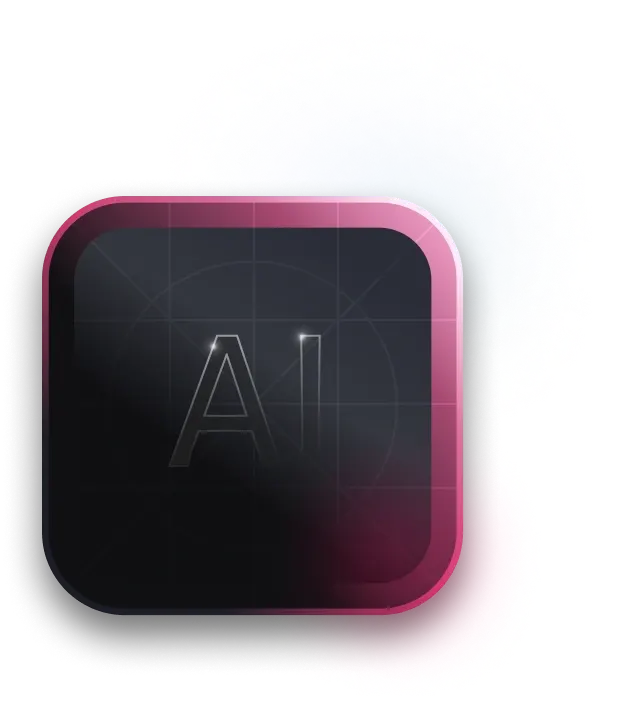Unhealthy nutrition is a global problem that often leads to the rise of obesity, overweight, diabetes, cardiovascular disorders, and lack of vitamins and micronutrients. Furthermore, poor nutrition control and improper diets, specifically, are the cause of approximately 22% of deaths worldwide. Health issues and the wish to keep a healthy lifestyle lead to the search for safe and effective nutrition programs. Thanks to highly adaptive and customizable capabilities, including tailored diet plan development, AI in nutrition has become a valuable helper for common users and professional athletes.
In this article, we invite you to review the role of AI in modern nutrition and its efficiency in diet planning, technologies, and use cases.
What Is AI Nutrition, and Why Is It Essential for Modern Diet Planning?
Searching through the internet for ways to lose or gain weight or improve health through diets, users can find a lot of nutrition recommendations for everybody. Milliards of menu sets look promising initially; however, the further you study them, the more you understand that they contain only very general advice without considering that not all bodies are the same. The traditional approach with universal recommendations can't cover all individual needs, showing a lack of customization and adaptivity to alternative conditions. An efficient nutrition program should consider genetics, lifestyles, individual features, and diet goals.
What does AI stand for in nutrition?
Artificial intelligence transforms traditional approaches with the help of machine learning algorithms, natural language processing, and data analytics to develop and optimize personalized dietary plans and nutrition advice. AI tailors each nutrition plan with unhuman accuracy and scrupulousness to make it most oriented to a user's body and health states, personal needs, meal preferences, and goals.
Explore the impact of AI on sports performance and analytics
Benefits of AI for personalized nutrition
-
Individual meal plan: Users can have various health conditions, allergies, preferences in food or intolerance to specific types, and different goals, from losing to gaining weight. AI can consider age, state, sex, lifestyle, and intentions to plan the meals accordingly. No need to keep in mind what it is allowed to eat when algorithms plan nutrition, instantly excluding unrequired ingredients;
-
Less time is required for meal preparation: Users who get programs or recipes online still have to check calories, manage groceries, and adjust them to their current diet. AI-powered diet applications can have integrated calorie and grocery trackers to simplify the process. Artificial intelligence can also generate recipes and meal suggestions based on individual habits and meal plan requirements;
-
Control over diet and balance in food: AI application for nutrition encourages the choice of healthy food instead of junky one. It can help avoid overeating and ensure the user gets all the necessary vitamins and microelements. Accurately calculated portions allow one to eat healthy food and avoid food waste usually associated with too big portions. Push notifications can help to develop a healthy eating regime;
-
Cost-saving: An alternative opportunity to get personalized diet and meal recommendations is to visit an expert trainer, diet coach, nutritionist, or specific doctor. However, the cost associated with such visits can be high, and they are charged for each session. AI can perform the same planning without going everywhere or spending much money for each consultation.
Technologies Behind AI Nutrition and Diet Planning
Our experts have created a list of the most useful technologies for organized nutrition and diet planning. Now we invite you to check their most valuable and their effect on planning.
Machine learning algorithms as a source of dietary trends
Machine learning, also known as ML, studies huge amounts of data to check records about food consumption, nutritional datasets, and statistics to detect common patterns. This approach allows artificial intelligence to develop trends leading to the most effective results without damaging health. ML analyzes how specific dietary habits can affect health outcomes and adjusts the program according to the user's intentions. For example, it can predict what type of meals is required for weight loss, muscle gain, energy boost, or disease prevention based on statistics about age, activity level, and health conditions.
Natural language processing as a method to understand dietary habits
Natural language processing, or NLP, helps artificial intelligence understand a user's food habits. NLP enables studying food logs, queries, and meal descriptions for further analysis. For example, users can tell AI what kind of meal they had during the day, and AI extracts and analyzes information about nutrition value, calories, and eating time. Data-driven insights into users' meal routines help to create more accurate diet recommendations and show where the routine requires improvements through conversation solutions like apps and chatbots.
Wearable devices as a source of real-time feedback
If you are into sports or activity monitoring, you know how wearable devices like fitness trackers and smartwatches can help. Such tools collect information about physician activity, heart rate, hydration level, calorie expenditure, and various biometric stats to give you real-time feedback. AI can analyze data received from wearable devices and adjust nutrition plans according to current activity. For example, if a user has an intensive workout, the smartwatch detects it, and the AI application further recommends getting a protein-rich meal for faster recovery.
Computer vision for food identification and estimation
Going through the groceries can be very challenging if you need to check each ingredient you buy before adding it to the cart, but computer vision allows you to avoid it. Users can take photos of prepared meals or separate ingredients, and AI will identify the food and calculate calories, nutrients, and vitamins. CV approach helps to save time, removing the need to add food manually or to check if everything complies with the current diet.
The combination of these technologies is the key to the creation of personalized and dynamic AI diet applications. For example, NLP studies meal habits and preferences, wearable integrations check activity, ML creates a diet plan, and computer vision automates tracking and enables accuracy. Altogether, it provides an all-covering solution for a healthy meal control system.
Our AI and Data Science Case Studies

AI Use Cases for Nutrition and Diet Planning
A lot can be said about AI's impact on healthy food and diet planning, but real use cases speak for themselves. Let's check each of them and look at real examples of applications in specific areas.
Diet AI assessments
Artificial intelligence enables accurate analysis of user's dietary habits and easily detects gaps and areas for improvement. AI-powered dietary assessments recognize and track food, analyze patterns, and provide up-to-date health information. For example, they can utilize computer vision to analyze photos of meals, estimate portion size, and calculate present nutrition value. Based on the user's food patterns, AI can conclude if users have enough macronutrients and vitamins. Access to wearable devices and biometric data also enables the control of blood sugar levels or cholesterol.
Foodvisor is a good example of an application for meal recognition. It analyzes the picture and shows the nutritional content of the plate. Foodvisor allows personalized AI nutrition plans and offers recipe suggestions and achievements for integrated goals.
Meal planning with the help of recipe suggestions
Recipe recommendation is the easiest way to escape the long way of choosing a meal that fully matches tastes and diets. Artificial intelligence can collect information about age, sex, health needs, activity, ethical choice, and diet purposes to design a personal menu. Applications with recipe suggestions often allow users to note which ingredients are available to offer what to cook. AI meal planning saves time and helps ensure that the dish will be chosen according to diet specifications and the user's needs without checking every ingredient.
For example, EatLove, an application for recipe suggestions, generates personalized nutrition plan recommendations and helps develop healthy eating habits. It offers simple recipes and helps with restaurant choices and grocery lists.
Predictive nutrition and health forecasts
Historical data on dietary plans and health markers can tell a lot about possible outcomes from the diet. Artificial intelligence can use such insights to provide early warnings about possible health issues caused by diet choices and suggestions to change the plan. AI pays more attention than any human could, detecting even minor changes in eating habits. It accurately monitors nutrient uptake and can notify about possible deficiency. Predictive capabilities and personalized forecasts will help users see the possible impacts on health even before the programs start.
Daytwo is an example of AI-powered solutions for diabetes control. It can analyze historical data and predict the blood sugar reactions on various meal types even before the first bite, ensuring the safety of its users.
Applications in weight management
Artificial intelligence changes the entire approach to weight management, giving it more control through various adaptable programs that include information about goals and lifestyles. It upgraded the meal planning process with calorie recommendations. It can also suggest specific exercises to empower the diet programs. Users can place information about food, activity, and weight to track the changes and get instant feedback about the progress. The AI-powered system helps to set realistic goals and achieve them with AI's accurate control, calorie count, and portion checks. AI can use one diet or a combination of several.
MyFitnessPal application helps to create AI nutrition plans according to daily progress, tracks calories, and encourages the development of healthy habits. It combines food, exercise, and calorie tracking programs to motivate users on their health journey.
Ethical and Practical Challenges
Responsible AI use is essential when you plan to create an AI-powered solution for nutrition control, and understanding the challenges is the number one step you need to take. At Requestum, we work extensively with artificial intelligence and have experience creating various custom solutions, so we have prepared a list of challenges to consider.
Let’s turn your ideas into the impactful software solution
Data privacy
Information safety is one of the most widely spread concerns regarding any application, especially if it is a solution with access to sensitive health information. Nobody wants to give unauthorized access to biometric readings, medical history, etc, as it could lead to possible data breaches or selling to third-party marketing companies. We pay special attention to giving customers safe applications with strong data encryption. Remember that anonymization should be allowed, and a transparent consent policy should be offered.
Overreliance on AI
AI simplifies users' decision-making process, but at the same time, it makes users over-rely on artificial intelligence choices, reducing their ability to make informed decisions. Blind following recommendations without proper understanding can lead to health risks because of potential errors in algorithms or inaccurate bits of advice. For example, wrong recommendations can worsen health situations. What is AI in nutrition? It is a helper, not a replacement for logical thinking, and user education can help to understand AI recommendations better and see them as a guide.
Accessibility and cost issues
Advanced AI-driven solutions and wearable devices can be costly, and it limits access to them for users with lower outcomes. Also, many applications require constant internet access. Some may be designed to consider specific demographics or exclude certain groups. To fight this challenge, consider reviewing the possibility of a free AI-powered version and separate premium subscriptions for additional functionality. Also, it is important to consider various cultural and regional specifics and inclusivity during the development.
Outcomes
Artificial intelligence makes the world of healthy nutrition control more accessible for people, even without visiting trainers or nutrition experts. AI personalized nutrition plans consider the user's age, activity, health condition, and many related factors to develop highly accurate and efficient programs for specific purposes. It serves common users and professional athletes well, and customization makes it even more focused on the user's goals and needs. If your company wants to create an application for AI nutrition and diet, contact us, and we will happily develop the advanced solution for your AI-powered nutrition plans.

Our team is dedicated to delivering high-quality services and achieving results that exceed clients' expectations. Let’s discuss how we can help your business succeed.


SHARE: